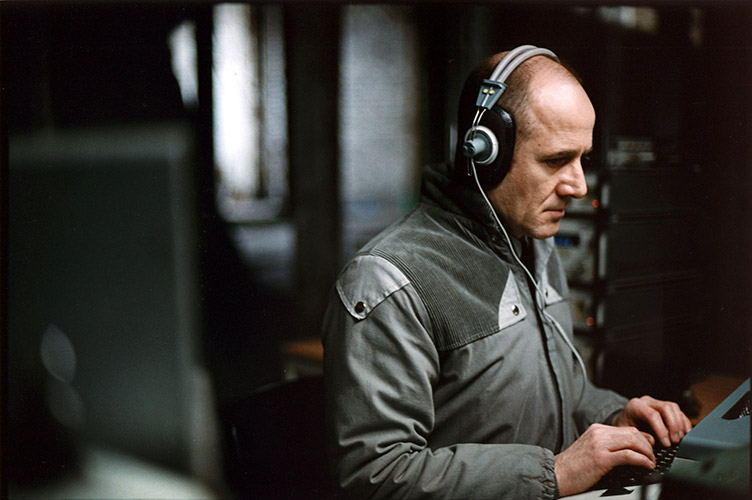 The decision of the Investigative Court of the Court of Appeals on granting permission to conduct an undercover investigative (search) action cannot be appealed, and therefore it takes legal effect from the moment of its announcement and is subject to immediate execution.
The decision of the Investigative Court of the Court of Appeals on granting permission to conduct an undercover investigative (search) action cannot be appealed, and therefore it takes legal effect from the moment of its announcement and is subject to immediate execution. The forms and methods of communication between the prosecutor, the procedural manager in criminal proceedings and the operative units, which are entrusted with the conduct of certain secret investigative (search) actions, are not regulated by the Code of Criminal Procedure, and therefore non-compliance with certain rules of interaction between them cannot be the basis for declaring evidence obtained in as a result of such actions.
Positions of the courts of the first and appellate instances: according to the verdict of the local court, PERSON_1 was found guilty of committing the crime provided for in Part 3 of Art. 368 of the Criminal Code.
In particular, the court of first instance recognized as proper and admissible evidence the protocol based on the results of the NSRD audio-video control of the person dated 11.06.2018, drawn up by the operational officer of the UZE PERSON_9. There is no specific time for this action in this protocol. However, it describes a conversation that begins on 06/08/2018 at 5:17 p.m., but from the attachment, a flash drive with a video recording, it can be seen that the actual exact time of the start of this action is 06/08/2018 at 4 p.m. 41 min. It can also be seen from the protocol that the specified action was carried out on the basis of the decision of the Court of Appeal dated 06.08.2018. This decision, together with the mandate of the prosecutor for its implementation, was sent from the regional prosecutor's office to the UZE address through the state special communications department on June 8, 2018 (time of delivery to the courier 4:25 p.m.). In the appeal, the defense attorney noted that the audio-video control of the person began to be carried out without the immediate executor having the decision of the Court of Appeal dated 06.08.2018, which indicates the inadmissibility as evidence of the protocol drawn up as a result of this procedural action. In the appeal, the defense attorney justified the inadmissibility as evidence of the audio-video control protocol of the person due to the absence in the case file of documents authorizing a specific executor to carry out the specified procedural action, the lack of evidence of the presence of procedural powers to participate in this particular criminal proceeding of the operational officer of the UZE PERSON_9, who made this protocol of NSRD dated 11.06.2018.
The appellate court left unchanged the verdict of the local court regarding PERSON_1.
The position of the CCS: the decision of the courts of previous instances was left unchanged.
Justification of the position of the CCS: the panel of judges of the CCS does not see grounds for canceling or changing the decisions of the courts of previous instances.
In particular, the panel of judges of the Supreme Court found untenable the arguments in the cassation complaint of the defense attorney about the inadmissibility of the results of the audio and video monitoring of the person due to the fact that the NSRD began before the courier could deliver a copy of the decision of the investigating judge on permission to conduct it.
The current Code of Criminal Procedure does not provide for the possibility of appealing the decisions of the investigative court of the appeals court on granting permission to conduct NSRD. Therefore, they enter into force from the moment of their announcement.
In addition, unlike the SRD, at the beginning of which the law obliges to provide a copy of the decision of the investigating judge (for example, during a search (Part 3 of Art. 2 36 of the CPC), such a requirement for conducting a SRD, for completely understandable reasons, in PDA is not included.
It can be seen from the materials of the criminal proceedings that the resolution of the investigating judge of the appeals court on the permission to conduct the NSRD dated 06.08.2018 was issued based on the results of the review of the petition of the prosecutor, who was appointed as the procedural manager in this criminal proceeding. The prosecutor personally participated in the consideration of the petition, and therefore had reliable information about the decision made by the investigating judge, which became legally binding from the moment of its announcement and should be implemented without any delay.
The forms and methods of communication between the prosecutor, the procedural manager, and the operational units entrusted with the conduct of separate SRD and NSRD are also outside the legal regulation of the CCP. At the same time, non-observance of certain rules of interaction between them cannot be grounds for declaring evidence inadmissible.
You can read more about the text of the resolution dated November 29, 2021 in case No. 654/3229/18 (proceedings No. 51-3482км21) at the link https://reyestr.court.gov.ua/Review/101673880 .




